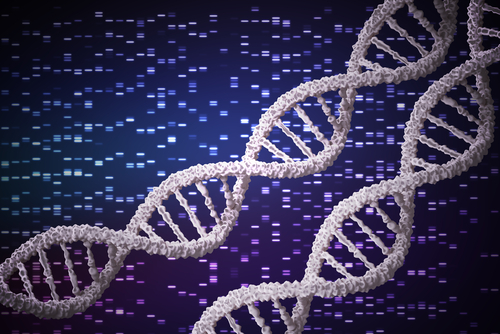Genetics Affect Weight Loss in Response to Lifestyle Interventions, Study Shows

Genetics doesn’t just influence a person’s weight, but also how that weight changes in response to weight-loss interventions, a recent study found.
Titled, “Genetic predictors of weight loss in overweight and obese subjects,” the study was published in Scientific Reports.
When a person’s weight becomes a medical concern, the first line of treatment is generally to recommend lifestyle changes — diet, exercise, and so forth. Many studies, particularly in the last decade or two, have shown that there are genetic factors that influence body weight, so it stands to reason that these factors would also affect whether and how an individual responds to these lifestyle interventions. However, there is currently a lack of data about how genetics affect changes in weight over time.
Thus, researchers recruited 788 adults who were overweight or obese, defined as a body mass index (BMI) between 25 and 40 kg/m2, as well as 168 control subjects (BMI less than 25 kg/m2).
The two groups were largely similar, though the overweight/obese group had a greater proportion of male subjects (59.7% vs. 48.7%), was older on average (59 vs. 48 years), and had a greater prevalence of diabetes and high blood pressure.
All subjects received nutritional counseling (including advice such as eating more vegetables and lean meats) at the start of the experiment, and were followed for an average of 5.58 years, with annual visits where BMI was reassessed.
The subjects were also genotyped, and the researchers developed a genetic risk score based on 25 genetic variants that had been linked with obesity risk in previous studies.
Interestingly, only three of these variants appeared at significantly different rates between the two patient groups, and two of these “high-risk” variants were actually significantly more common in the control group. This highlights how an individual gene usually only plays a fractional role in determining a complex trait such as body weight — but these differences at baseline weren’t really the researchers’ focus.
Instead, the researchers used statistical models to examine the association between genetic scores and weight change over time. After the first year, participants lost an average of 0.68% of their body weight (around 1.4 pounds for a 200-pound individual).
The genetic risk score accounted for 2.4% of variation in this initial loss, after accounting for age, sex, smoking status, and weight at baseline. Among these variables, only weight at baseline had a stronger association with weight loss than the genetic score.
Over the longer course of the study, participants tended to gain weight, though year-to-year differences typically weren’t statistically significant. At the end of follow-up, the genetic score explained 1.6% of weight variance after the aforementioned variables were accounted for.
Illustrating this, the scientists divided the obese/overweight participants into three groups based on their weight change between the beginning and end of the study: those who lost 2% or more of their body weight (258 people), those whose body weight changed by less than 2% (335 people), and those who gained 2% or more of their body weight (194 people).
The average genetic risk scores in these groups were 18.95, 19.31, and 20.81 respectively. In other words, genetic risk scores were significantly lower among those who had lost the most weight, and vice versa.
Similar results were found when 5% of initial body weight was used as the cutoff.
Overall, this study demonstrated that genetics affect how a person’s weight changes over time in response to an intervention — in this case, dietary counseling. The researchers noted that this counseling was “not very intense,” and that the percentages they found probably aren’t really a big enough factor to help in medical decision-making, but this is a relatively small study that only looked at a few (25) of the thousands of human genes, many of which may play a small part in affecting obesity risk.
Thus, the researchers concluded in their paper that “further research is needed to fully understand the role of genetics and epigenetics in obesity, which could lead to better management and prevention of this pandemic.”




